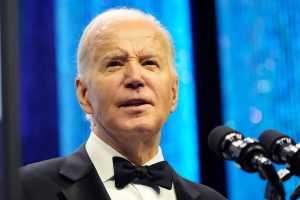The University of California Board of Regents on Tuesday whacked UCLA with the maximum possible “contribution” to its sister campus, approving a $10 million annual payment to Cal’s athletic department.
But the Bruins emerged from the meeting at UC Merced with a partial victory as the special committee on athletics narrowed the payment timeframe from six years to three. It’s scheduled to begin in the 2024-25 academic year and end in the summer of 2027, at which point the regents will revisit the issue.
The committee’s decision is on the agenda for Thursday’s meeting of the full board, under a heading titled: “Committee Reports Including Approvals of Recommendations from Committees.”
The $30 million total subsidy is designed to compensate Cal’s athletic department for revenue lost because of UCLA’s move into the Big Ten (with USC) and the subsequent collapse of the Pac-12.
The narrowing of the timeframe from UC president Michael Drake’s original six-year proposal followed a discussion on the roiling landscape of college sports, where the NCAA’s economic model is under legal assault and the major conferences are expected to implement a revolutionary revenue-sharing plan with athletes.
“The landscape is turbulent,” Cal chancellor Carol Christ told the regents during the open session.
Nathan Brostrom, the UC’s chief financial officer, led the discussion as several members of the special committee on athletics expressed concerns over the “contribution” from Westwood to Berkeley.
Regent Keith Ellis addressed his “strong reservations because of the precedent it sets where we take from one campus and give to another.”
At one point, regent Richard Sherman suggested the payment timeframe be reduced to one year.
Chair Richard Leib countered by noting that the disparity in revenue between the UCLA and Cal athletic departments “has gotten a lot worse” since the regents approved the concept of a contribution in December 2022.
The Bruins are expected to receive approximately $60 million per year through 2030 from the Big Ten’s media rights agreement with Fox, CBS and NBC.
Meanwhile, Cal was forced to enter the ACC following the demise of the Pac-12. In their new home, the Bears will receive about $10 million annually for seven years — or about 30 percent of what the ACC’s full-share members receive — before their distributions ladder up in the 2030s.
The size of UCLA’s annual support payment is based on a roughly $50 million disparity in the media rights revenue between the campuses.
However, the subsidy won’t solve Cal’s financial woes.
The Bears reported a $2.7 million operating surplus in the 2023 fiscal year but needed approximately $34 million in support from central campus to sneak into the black.
Related Articles
‘Pac-2’ TV deal: WSU, OSU partner with Fox, The CW for 13 homes games
Big Ten football outlook: Over/Under picks for 2024 win totals
WCC expansion: What GCU, Seattle say about Gonzaga and the Big 12
Mailbag: Big 12 outlook for Arizona, ASU, Utah, CU; UCLA’s ‘Calimony’
UC regents expected to hit UCLA with maximum annual subsidy — err, “contribution” for Cal
Asked to explain how her athletic department intends to strengthen its fiscal position, Christ cited a five-point strategic plan that includes raising $100 million to endow the Olympic sports, increasing Memorial Stadium event revenue and moving scholarship costs to the financial aid office.
For UCLA, the $10 million subsidy carries significant competitive consequences for life in the Big Ten, especially when an increase in travel costs of about $12 million is factored into the budget.
The Bruins reported a $36.6 million operating deficit last year and, unlike the Bears, receive little support from campus.
Put another way: The support payments for Cal will leave the Bruins with a $30 million hole in their pocket (over the next three years) relative to USC.
That said, UCLA’s decision to join the Big Ten was not based entirely on the media rights revenue.
The Bruins wanted a broader platform for their athletes, more exposure for their programs and enhanced stability for their future — stability that comes only with membership in either the Big Ten or SEC.
Those elements are intact regardless of the subsidy level.
UCLA declined to comment on the regents’ vote while Cal referred requests for comment to the UC Office of the President, which did not respond Tuesday to a request for comment.
*** Send suggestions, comments and tips (confidentiality guaranteed) to pac12hotline@bayareanewsgroup.com or call 408-920-5716
*** Follow me on Twitter/X: @WilnerHotline
*** Pac-12 Hotline is not endorsed or sponsored by the Pac-12 Conference, and the views expressed herein do not necessarily reflect the views of the Conference.












